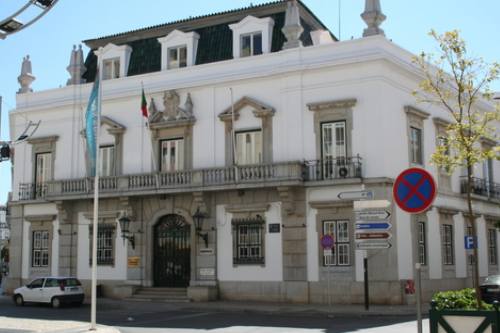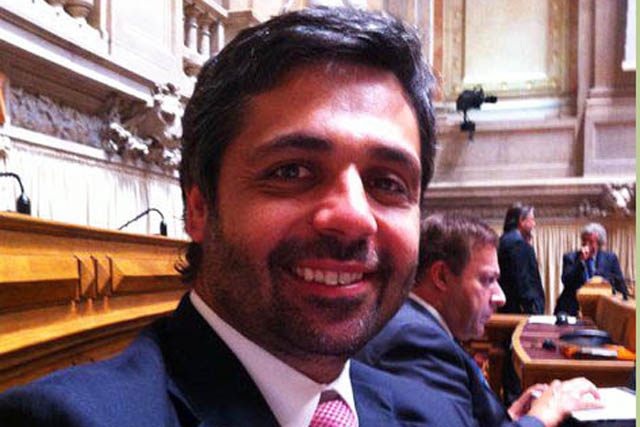 The heads of the Regional Coordination and Development Commission (CCDR) of the Algarve must be chosen by "direct and universal election", at regional level, and this entity may even add more powers than those provided for in the Decentralization Plan than the Government proposes to develop, defended the PSD deputy Cristóvão Norte, in an open letter sent to the Prime Minister.
The heads of the Regional Coordination and Development Commission (CCDR) of the Algarve must be chosen by "direct and universal election", at regional level, and this entity may even add more powers than those provided for in the Decentralization Plan than the Government proposes to develop, defended the PSD deputy Cristóvão Norte, in an open letter sent to the Prime Minister.
The Algarve parliamentarian wants the region to follow the Metropolitan Areas of Lisbon and Porto, which should gain the right to choose their regional political leaders by direct vote. In a plan that the Government will begin to draw up, a change is also foreseen in the organic of the CCDRs themselves, entities that already function as a deconcentrated management body of the State, in the different regions.
According to a statement from the Council of Ministers, of 14 January, the process of drafting the plan will start now and will "involve 10 ministries", and its completion is expected by the "end of the first half of 2017, so that the municipal cycle 2017-2021 can already take place in the new framework».
The objective of the strategy to be outlined is “to deepen local democracy, improve local public services and give new powers to local authorities”. «This plan implies a review of the competences of the Regional Coordination and Development Committees and of the Metropolitan Areas, reinforcing their respective democratic legitimacy», announced the Government.
But, according to Cristóvão Norte, the plan is “sick of the paradox” of giving the opportunity to the metropolitan areas of Lisbon and Porto, which already “enjoy the approval of the State”, to have their bodies elected by direct and universal vote, “while denies the same elective procedure to other entities of a supra-municipal nature».
Despite claiming to be "sensitive to an effort of this nature", he considers this step insufficient to promote true decentralization, which encourages regional development.
 “I cannot lend my agreement to a model that expands the voice of those who already today have more economy, more population, greater political influence. In short, decentralization yes, metropolitan gigantism no. Portugal is decentralized, but not subjugated to Lisbon and Porto, at different speeds and where regional disparities are growing. To balance Portugal, you cannot have political giants and administrative dwarfs. This is an opportunity that should not be squandered to contradict a centralist and outdated vision, administratively obsolete and politically non-representative», defended Cristóvão Norte.
“I cannot lend my agreement to a model that expands the voice of those who already today have more economy, more population, greater political influence. In short, decentralization yes, metropolitan gigantism no. Portugal is decentralized, but not subjugated to Lisbon and Porto, at different speeds and where regional disparities are growing. To balance Portugal, you cannot have political giants and administrative dwarfs. This is an opportunity that should not be squandered to contradict a centralist and outdated vision, administratively obsolete and politically non-representative», defended Cristóvão Norte.
At issue is the model announced for the rest of the country. «The long-distance communities and their respective bodies – whose universe of competences is similar to that of metropolitan areas – will continue to be elected by indirect suffrage, and the CCDRs will evolve into this system of choice. The latter will depend on the will of Mayors and Municipal Assemblies” who “were elected with a purely local representation and not designed to ponder and deliberate supra-municipal matters”, he considered.
A fact that "decreases the vitality and authority of that power, weakens it and relegates it to a politically lower level, more prone to disregard by the central power and less syndicate". "In other words, weaker and less able to compete with those trained by direct suffrage, with similar vocation and similar skills," defended the Social Democratic deputy.
"I hope that, in the process that is now opening, there will be space to conceive a model based on effective democratic decentralization, rather than what, as it is proposed, seems to be a territorially unbalanced decentralization that favors those least in need." concluded Cristóvão Norte, in the letter sent to Prime Minister António Costa.


















Comments